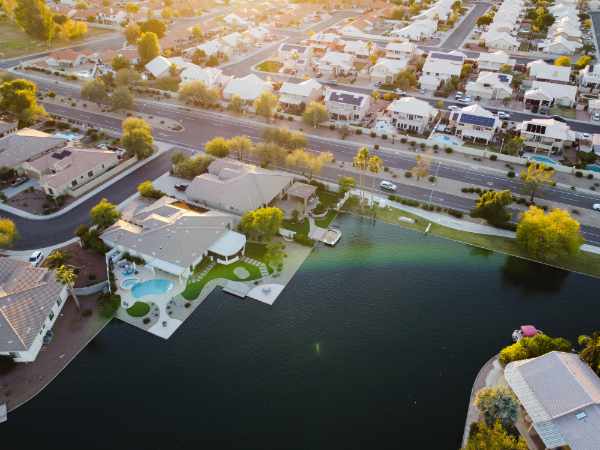While investors in the stock market agree and anticipate the high risks of this investment portfolio, real estate investors often assume that the value of their properties won’t decrease by much. This isn’t entirely wrong. There are a few times that a real estate bubble will form and cause similar extreme volatility as other investments. However, the housing market occasionally undergoes a period of irrational exuberance that precedes low demand and prices.

What Is the Real Estate Bubble?
A real estate bubble typically represents a sudden increase in housing prices coupled with increased demand and limited inventory. The demand for real estate properties increases as more prospective buyers enter the market. With limited inventory and a surge in demand, housing prices certainly go up.
Continuous surges in prices often lead to unsustainable levels. Real estate properties become unaffordable to average and above-average buyers. A housing bubble is temporary, lasts months to years, but will ultimately crash due to external factors. The Toronto housing market crash is a good example of a flattening housing bubble.
Causes of the Housing Market Bubble
Like most other products and services, the real estate market is a free market. This means it is determined by the laws of supply and demand. An increase in demand or a decrease in supply leads to higher prices. Real estate prices often increase when demand beats supply.
Deficient supplies in the real estate market often occur due to external forces, such as natural disasters. Unfortunately, the supply of real estate properties cannot increase quickly because it takes time for homes to be completed. Some urban areas also don’t have space for more buildings, capping supply.
What Causes Housing Demand?
An increase in demand in the real estate market occurs because of the following:
- An increase in economic activities and prosperity earns consumers more disposable income, encouraging homeownership.
- If a demographic segment shifts to the housing market
- Low mortgage rates that make homeownership affordable
- Attractive mortgage products, such as low-down-payment, make homeownership accessible
- Better credit terms, such as low underwriting standards, increase buyers in the market
- If lenders want mortgage businesses to sort the demand for mortgage-backed securities on Wall Street
Most of these variables combined lead to a real estate bubble. Regardless of the factors, the housing bubble demonstrates a common pattern. An increase in demand and prices leads to excessive speculative and risk-taking behavior by players in real estate, including buyers, lenders, borrowers, investors, and builders.
What Bursts the Housing Bubble?
As mentioned, the housing bubble can last for a few years before bursting. The bubble bursts when risk-taking by real estate players becomes excessive, and prices don’t reflect the fundamentals anymore. For instance, builders will continue building in response to the initial increase in demand. However, over time, demand tapers off, causing a reduction in sales and price depreciation.
However, this doesn’t end the cycle. As property sales decline and prices stagnate, there’s a general realization of risks throughout the market. The realization of risks is often precipitated by several factors, such as a general decline in economic activity in the area, an increase in interest rates, and exhausted demand. The cycle is completed when the demand achieves equilibrium with the supply and prices.
Endnote
Most real estate investors don’t know what to do during a housing bubble. For starters, you should put off the idea of buying a home in a bubbling market. If you have a property in an area experiencing the bubble, consider selling only if you are moving to a less expensive area.


